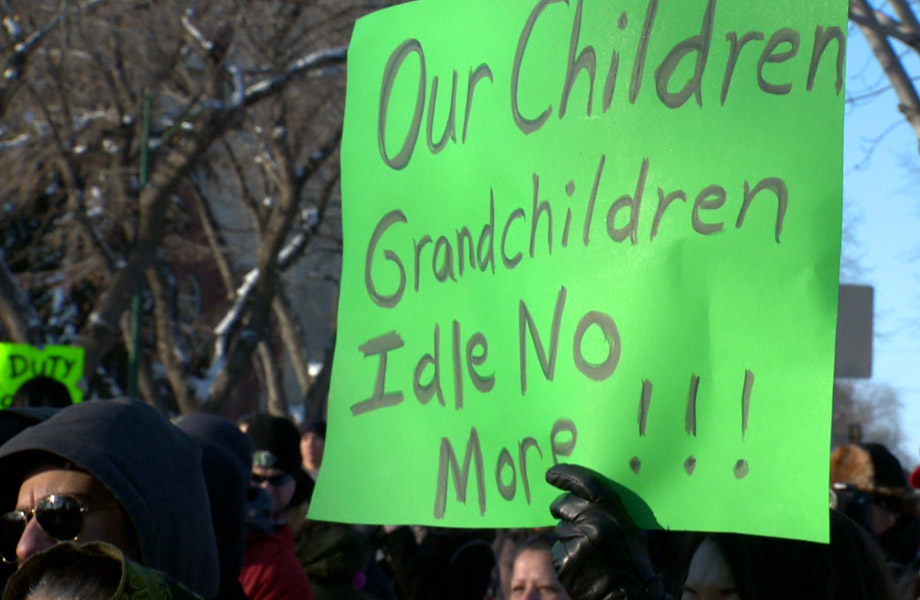OTTAWA – After a tumultuous few months between First Nations and the Conservative government, it appears Ottawa has few plans to shake up its relationship with aboriginals on key issues such as education.

The year started with First Nations issues thrust into the national spotlight by the Idle No More movement and Attawapiskat Chief Theresa Spence, who refused solid foods until the government revisited its treaty obligations.
But the demands of protestors received scant attention in the federal budget released by Finance Minister Jim Flaherty on Thursday.
“It’s too bad there wasn’t something more substantive on First Nations issues,” said David Macdonald, senior economist at the Canadian Centre for Policy Alternatives.
“Some of the big moves on safe drinking water, and housing are really missing unfortunately from this budget,” he said.
“Despite all the Idle No More protests and so on, there really hasn’t been a big move from the infrastructure side.”
This year’s federal budget promises little new money for native education, one of the rallying cries of the Idle No More movement.
It contains $10 million over two years for post-secondary scholarships and bursaries to the charity Indpsire, and $5 million over five years to expand an aboriginal business chair at Cape Breton University.
And while native groups have decried what they say is a significant gap in funding for First Nations students, the budget only reiterates the government’s commitment to develop a First Nations Education Act by September 2014 with input from communities.
“The government is also committed to exploring mechanisms to ensure stable, predictable and sustainable funding for First Nations elementary and secondary education,” says the budget
The only mention of last winter’s protest – spurred on by Spence’s strike as protests against the omnibus budget bill ramped up across the country – comes in passing reference to Prime Minister Stephen Harper’s commitment to “high-level dialogue on the treaty relationship.”
The commitment was one of the outcomes following a meeting between Harper, the Assembly of First Nations and senior officials in January – with no follow-up currently scheduled.
The budget also contains changes to income assistance – ones that come with strings attached.
The government will commit $109 million over five years to a training program called the First Nations Job Fund, but income assistance will depend on whether applicants participate in the training program.
And $132 million in funding over five years for communities to “ensure compliance” with income assistance is also tied to whether communities implement mandatory training.
NDP leader Thomas Mulcair called the initiative “a regressive new workfare program” for First Nations.
“I am very disappointed that Mr. Harper has walked away from building a new more respectful relationship with First Nations. The budget measures for these communities reveal a paternalistic and insulting approach,” Mulcair said in a release.
Liberal leader Bob Rae criticized the government for offering no new money for First Nations education.
The budget also commits $155 million over ten years for First Nations infrastructure such as bridges.
While aboriginals including Spence have asked for a complete overhaul of the Crown-First Nations relationship, the budget appears to take a piecemeal approach.
It includes money for on-reserve economic development, safety, and health services including mental health.
Green Party leader Elizabeth May said in a release that her recommendation for more money for First Nations education was adopted, although it was much less than recommended.




Comments